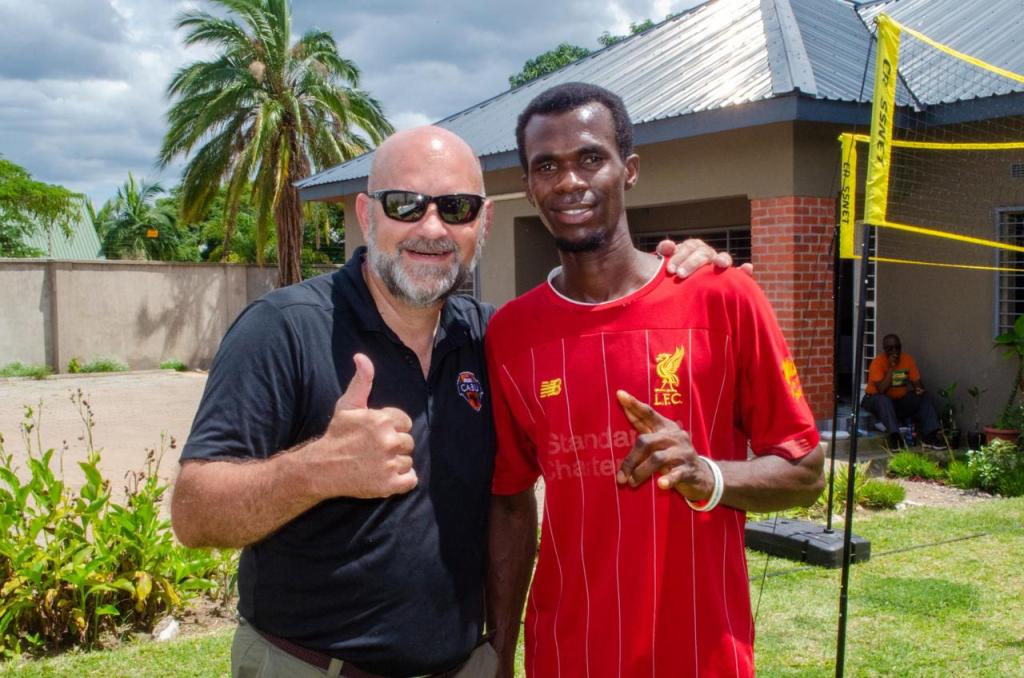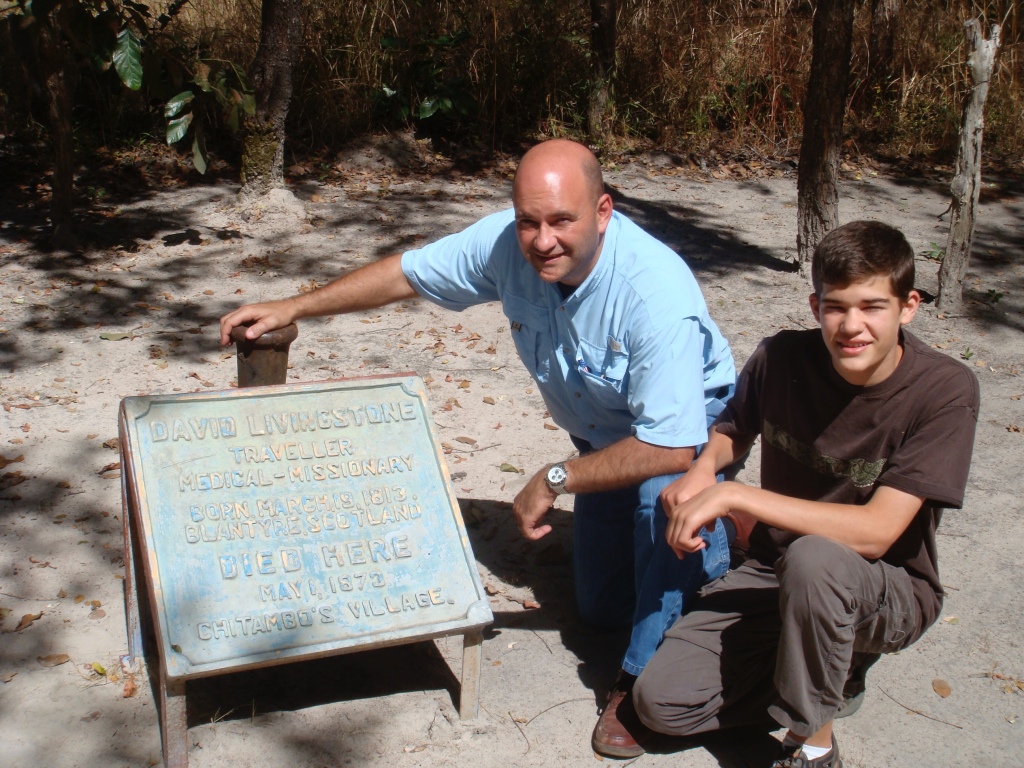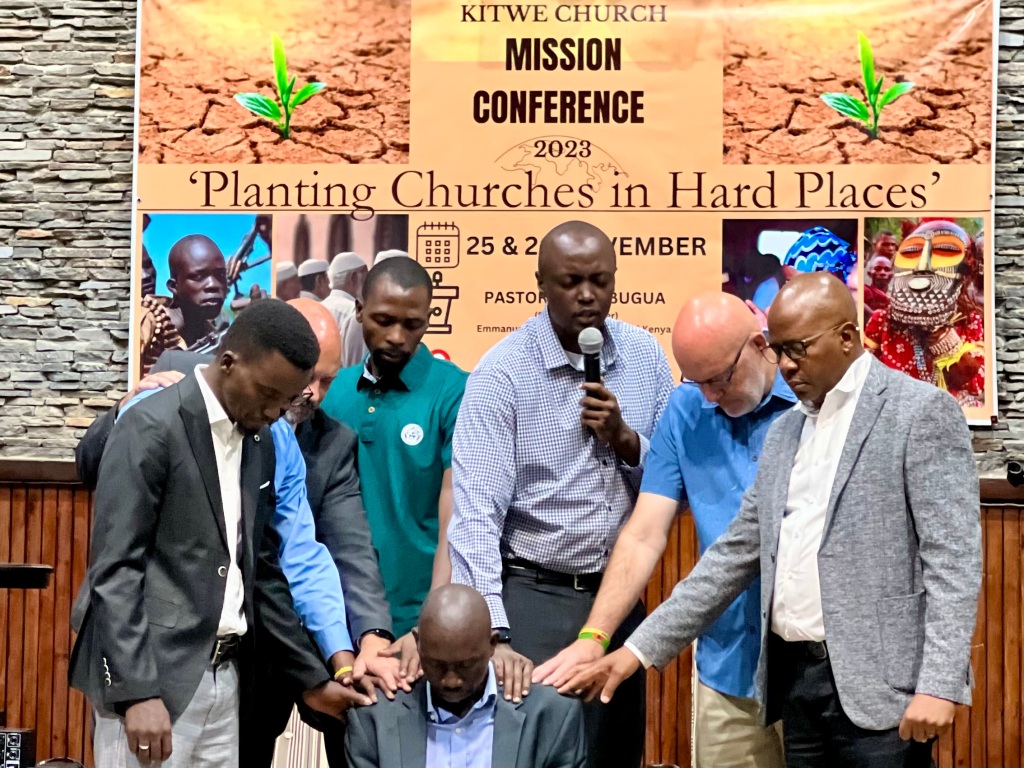Every Church Should Have A Missions Policy
The local church is responsible for sending missionaries to spread the gospel, make disciples, and establish healthy, thriving churches. Every church must be intentional and proactive in fulfilling the Great Commission rather than leaving it to chance. Therefore, every church should develop a missions policy to guide its active engagement in God’s mission.
Having a missions policy in a church is important for several reasons, as it helps to clarify the church’s stance on missions and provides a structured framework to guide the missions outreach of the local church. Here are some of the key reasons why a church should have a missions policy:
Direction: A missions policy provides clear direction and focus for budgeting for the church’s global outreach. Where you spend your money identifies your priorities. It helps in identifying the church’s priorities in missions, whether local, international, short-term, or long-term missions. This focus ensures that the church’s resources are used effectively in areas you believe make the most impact, and with which you are philosophically aligned.
Accountability: A well-defined missions policy ensures consistency in how the mission program of the church is carried out and how support is provided to missionaries. It sets standards for selecting and supporting missions and missionaries, which in turn fosters accountability among those involved in the mission work.
Stewardship: Churches operate with limited resources, and a missions policy helps in the wise stewardship of these resources. It guides decision-making on financial support, resource allocation, and other forms of assistance, ensuring that the church’s contributions are strategically invested in line with their biblical priorities for missions.
Congregational Participation: A clear missions policy can unite the congregation around a common vision for missions. It guides the congregation in applying the biblical theology of missions taught from the pulpit. It educates and informs church members about the church’s missions work, encouraging their participation through prayer, giving, and active involvement in missions outreach.
Partnership: A missions policy can facilitate partnerships with other churches, mission organizations, and agencies. This is especially necessary when the church is serving as the primary sending church for a missionary. The policy outlines the criteria for forming partnerships and ensures that collaborations are strategic, effective, and aligned with the church’s theological convictions and mission goals.
Evaluation: Finally, a missions policy allows for regular objective evaluation of the church’s missions activities. It provides a basis for assessing the effectiveness of missions work and making necessary adjustments. This ensures that the church is able to evaluate a particular work and workers in light of objective guidelines, helping them make helpful adjustments to their ministry work.
A missions policy is a vital tool for any church engaged in missions. It provides clarity, direction, and structure, ensuring that the church’s mission efforts are effective, strategic, and aligned with its broader vision and values.

EXAMPLE OF A CHURCH MISSION POLICY
Kitwe Church crafted the following mission policy to provide clear guidance to the elders and those involved in missions outreach. A mission policy should be applicable to the local context, but it should be driven by a theology of missions and express the philosophy of the church in regards to its task.
The Missions Policy of Kitwe Church
It is a privilege and responsibility for Kitwe Church to join God in His work worldwide. Kitwe Church is responsible for sending and supporting qualified and equipped missionaries to plant churches as God leads.
“Missions is not the ultimate end of the church. Worship is. Missions exists because worship doesn’t. When this age is over and the countless millions of the redeemed fall on their faces before the throne of God, missions will be no more. It is a temporary necessity. But worship abides forever. In missions, we aim to bring the nations into the white-hot enjoyment of God’s glory.” – John Piper
Psalm 67:3- 4…Let the peoples praise Thee, O God; let all the peoples praise Thee! Let the nations be glad and sing for joy!
God is the one who initiates and sustains His mission. The church partners with God to fulfill His mission by preparing, sending, and supporting missionaries.
Definition of Terms:
Mission – the work of God to reconcile sinful human beings to Himself.
Missions – the plan of committed believers to accomplish the mission of God.
Missionary – a person, intentionally sent across cultural boundaries to preach the gospel, win people to Christ, and disciple them into mature, reproducing local congregations of believers by training biblically qualified leaders.
PURPOSE OF THE MISSION POLICY
The elders prepared this Missions Policy to provide clarity and direction to the Missions outreach of Kitwe Church. This policy contains biblical principles and practical guidelines for the work of missions.
The goal of the New Testament missionary enterprise is planting churches, not merely calling individuals to salvation. Only those who have a solid understanding of New Testament ecclesiology are in a position to establish churches and appoint church leadership. This policy provides guidelines for Kitwe Church to evaluate missions opportunities and those who present themselves as missionary candidates.
THE MISSIONS COMMITTEE
The primary purpose of the Missions Committee is ‘To inform, challenge, and mobilize God’s people to be creatively and strategically involved in His global mission.’
Missions Committee Member Qualifications
- They should be a “World Christian.” This means they should exhibit a Christ-like life and give evidence of having caught the vision of God’s global redemptive purpose by responding to that vision personally.
- They should be committed to the local body of believers. They should actively fellowship with Kitwe Church and demonstrate an understanding of Kitwe Church’s philosophy of ministry and missions. Overall, their heart for seeing the unreached peoples of our world reached with the message of Christ should be transferable to others within the Body of Christ.
Organization of the Mission Committee
The size of the Missions Committee will vary, with one of the members an elder.
It is desired that every member be willing to serve on the Missions Committee for at least two years.
The whole group will meet once monthly, and other meetings may be called for specific purposes.
Missions Committee Responsibilities
The Missions Committee will continually adapt, evaluate, and revise specific goals for the most effective missionary outreach. The missions committee assists the elders:
- Ensure that Kitwe Church’s missions are based on Biblical principles.
- Keep the church aware of global needs.
- Educate and nurture a deep commitment to missions within the congregation.
- Serve as a liaison between the church and the missionaries.
- Stimulate intercessory prayer for world evangelism. Educate themselves about missions by reading books, periodicals, and websites, attending conference seminars, and taking short-term mission trips where practicable.
- Promote, encourage, and communicate missions to the Body of Christ at Kitwe Church.
- Provide ongoing care to the missionaries supported by Kitwe church. This may involve supplying practical needs, spiritual and educational development, regular correspondence, arranging hospitality for visiting missionaries, and any other means of support that may be helpful.
- Assist the Elders in strategic planning for the long-range goals of the missions enterprise of Kitwe Church.
CRITERIA FOR SUPPORTING MISSIONARY CANDIDATES
The Priority Of Career Missions
Scripture’s most measurable goal for accomplishing the Great Commission is that of discipling ‘peoples.’
We are commanded to disciple all the world’s peoples (Matthew 28:18). We are promised that the gospel of the Kingdom will be preached to the whole world as a witness to all the nations, and then the end will come (Matthew 24:14).
God shows us that in the end, there will be men and women worshipping the Lamb from every nation and all tribes and peoples and tongues (Revelation 7:9)…because Christ has purchased for God with His blood individuals from every tribe, tongue, people, and nation (Revelation 5:9).
Therefore, although we must wholeheartedly continue to multiply churches within people groups where an evangelizing church has already been planted, we must also be vitally concerned about planting churches where Christ has not yet been named in a culturally relevant manner – Romans 15:20.
Types of Missionary Outreach
Church Planting – The establishing of local, indigenous churches characterized by true worship of God, effective Biblical nurture of believers, and the evangelization of unbelievers, to the end that these churches will reproduce themselves.
They are strengthening Existing Churches – Equipping and building up local indigenous churches to effectively evangelize and reproduce churches among their people.
Support Ministries – Providing support services to aid those engaged in church planting and equipping ministries. This may include translation, caring for orphaned and relinquished children, serving those infected with HIV/AIDS, refugee relief, administration, teaching missionary children, medical work, aviation, community development, and other services. However, for such a ministry to be supported by Kitwe Church, it must be demonstrable that such work contributes to church planting and is not simply a humanitarian effort.
These categories are not meant to convey inferiority or superiority among types of missionary work. We trust that a healthy blend of diversified ministries will be supported and encouraged under the Holy Spirit’s direction. At the same time, we will seek to plan and strategize to focus on areas of missionary activity that seem critical from the perspective of world missions at this time in history.
For this reason, we will seek to devote more and more of our missionary activity to the planting and equipping churches in unreached, critically needy areas and areas that are strategic for training the next generation of servant leaders for Great Commission Living.
OUR MISSION GOAL
Indigenous Ministries – An indigenous ministry is native to or originates naturally in a particular place. We do not seek to “transplant” churches from one culture into another. Instead, we aim to plant the seed of God’s Word into the local soil of whatever culture our missionaries serve so that the resulting church is both firm in Biblical truth and principle and culturally distinct in its expression of worship and gospel witness.
An indigenous church must be self-supporting, self-governing, self-reproducing, and self-theologizing. Each local church planted through the ministry of Kitwe church will be an autonomous church when it has reached full maturity. Christ has promised that He will build His church. We must do our part to initiate work in new places but not micro-manage the work as God brings it to maturity.
In keeping with these indigenous principles, Kitwe Church will not simply assist in all requests to fund mission projects. We will not contribute to the dependency syndrome that plagues most mission fields. Instead, we will strategically choose which missionaries and which local churches to partner with based on our relationship with them and the commonality of our mission principles, policies, and practices.
Short-Term Missions
Short-term missions are typically exploratory, not requiring a specific calling to become a vocational or career missionary. For this reason, a person interested in short-term missions still needs the support and endorsement of his home church while investigating his future in missionary service.
Qualifications for Missionary Candidates
- Spiritually mature:
- A clear profession of faith and evidence of God’s saving work.
- Consistent Christ-like lifestyle
- Evidence of the fruit of the Spirit
- Model the servant life of Christ.
- A member of Kitwe Church and actively involved in the church’s life for a minimum of two years or a member in good standing of a fellowshipping church and been actively engaged in the life of that church for a minimum of two years.
- Reflects the qualities of 1Timothy 3:1-13 and Titus 1:6-9.
- Adequate education and training to carry out effectively the proposed ministry. This may include Bible training, cross-cultural preparation, and professional training.
- A background of proven ministry experience, including active involvement in evangelism and discipleship. At least some experience in cross-cultural ministry settings would be helpful.
- Desires to maintain a strong relationship with Kitwe Church’s members and leadership and abide by any guidelines for correspondence and periodic ministry review.
- Full recommendation from the sending church and a missionary sending agency if the sending church is not providing those services.
ROLES AND RESPONSIBILITIES
Our Role in Supporting Those Missionaries We Send
There is a difference between being a sending church and supporting a church. Most missionaries will receive financial support from several individuals and supporting churches.
Supporting churches pray and communicate to keep a healthy relationship with the missionary in the field.
The sending church is the home church for the missionary. The sending church has a greater responsibility to the missionary than a supporting church. Both provide financial and prayer support, but the sending church is the missionary’s primary source for encouragement, support, and accountability.
The sending church should responsibly ensure that the missionary’s spiritual, personal, and financial needs are met. The sending church often handles the receipt and distribution of missionary support. The sending church is usually the base of operations for the missionary when they are home on furlough.
The missionary is responsible and accountable to the sending church and should remain in close contact with the church leaders (Hebrews 13:17). While home on furlough, the missionary should be involved in ministry in the local church as much as possible (Acts 14:26-28).
The Role of Kitwe Church In Caring for Our Missionaries – What a missionary can expect from us
- Prayer Support – we will continually and creatively encourage our people to pray for our missionaries.
- Financial Support – we will pay our promised support every month for their term. We plan to support those we send at a minimum of 20% of their financial support level. At the end of a given time, both parties will evaluate to see if we want to continue this relationship. If there is a change in ministry and location, an immediate evaluation will be made to continue supporting this ministry.
- Consistent Communication – we will attempt to keep our missionaries up to date on what is happening at Kitwe Church and inquire about personal details in their lives so we can keep up to date on what is happening with them as church members for whom we are accountable.
- Practical Assistance – if a missionary needs housing, transportation, furniture, etc., while in our area or other kinds of needs while on the field, we will attempt to meet those needs somehow.
- Team Relationship – we want to be viewed as part of the team behind our missionaries. They can expect us to be concerned for them and their ministry. We desire openness from both parties. We want to continually develop the attitude of a team ministry that results in a closer relationship.
- Report to Missions Committee – our missionaries can expect to meet with the Missions Committee whenever they are home on report ministry. They will also be given adequate time to report to the entire church congregation.
Responsibilities Of Kitwe Church Missionaries
- We desire close communication with each of our missionaries. We request correspondence from them at least monthly, either by email or phone. We want to know how the missionary is doing and inform you how the ministry progresses.
- As part of the team, we would like to be informed of any change of plans for ministry strategy and location.
- To help us better plan for a missionary being in our area, we would like to know as soon as possible when they will be visiting Kitwe Church next.
Our Relationship With Mission Agencies and Para-Church Ministries
Mission agencies and Para-church ministries are Christian ministries that do not meet the accepted criteria to be churches. While not mentioned in the New Testament, mission agencies and Para-church ministries are not unbiblical and are often helpful. They exist to assist the work of local churches.
At Kitwe Church, we will work with mission agencies and para-church ministries. Supporting missionaries connected with such ministries does not endorse all aspects of those ministries, their beliefs, or practices.
Conclusion
This policy has been prepared to clarify Kitwe Church’s position on some of the issues related to missionary service for both those who go and those who serve as senders. The church elders sincere desire that this paper be helpful. Please feel free to contact the church elders if you have any questions. We are here to serve Jesus Christ, His church, and you.
This policy will be reviewed and revised as often as needed, with a thorough review every two years. All revisions will have the full support of the elders and the Missions Committee.





Leave a comment